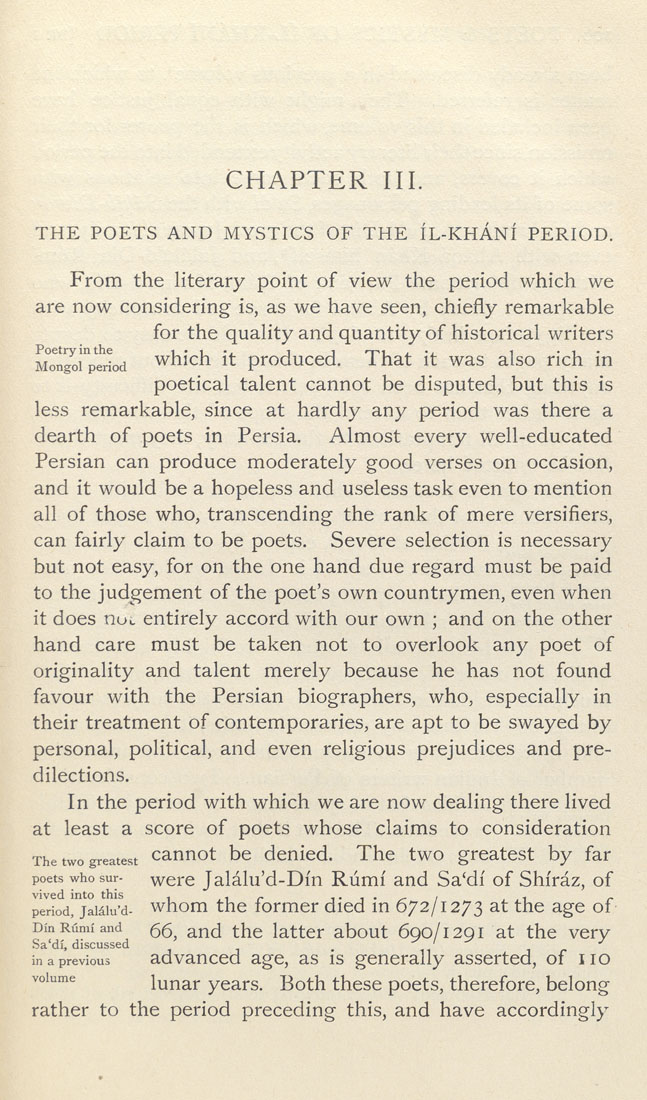CHAPTER III.
THE POETS AND MYSTICS OF THE IL-KHANI PERIOD.
From the literary point of view the period which we
are now considering is, as we have seen, chiefly remarkable
for the quality and quantity of historical writers
M°ong^rperiod which it produced. That it was also rich in
poetical talent cannot be disputed, but this is
less remarkable, since at hardly any period was there a
dearth of poets in Persia. Almost every well-educated
Persian can produce moderately good verses on occasion,
and it would be a hopeless and useless task even to mention
all of those who, transcending the rank of mere versifiers,
can fairly claim to be poets. Severe selection is necessary
but not easy, for on the one hand due regard must be paid
to the judgement of the poet's own countrymen, even when
it does noc entirely accord with our own ; and on the other
hand care must be taken not to overlook any poet of
originality and talent merely because he has not found
favour with the Persian biographers, who, especially in
their treatment of contemporaries, are apt to be swayed by
personal, political, and even religious prejudices and pre¬
dilections.
In the period with which we are now dealing there lived
at least a score of poets whose claims to consideration
The two greatest cannot be denied. The two greatest by far
poets who sur- woro Jalalu'd-Din Rumi and Sa'di of Shiraz, of
period, jaiaiu'd- whom tho formcr died in 672/1273 at the age of
Din Rumi and 55^ a.nd tho lattcr about 690/1291 at the very
Sa'di, discussed , ' "^
in a previous advanced age, as is generally asserted, of no
volume lunar years. Both these poets, therefore, belong
rather to the period preceding this, and have accordingly
|








